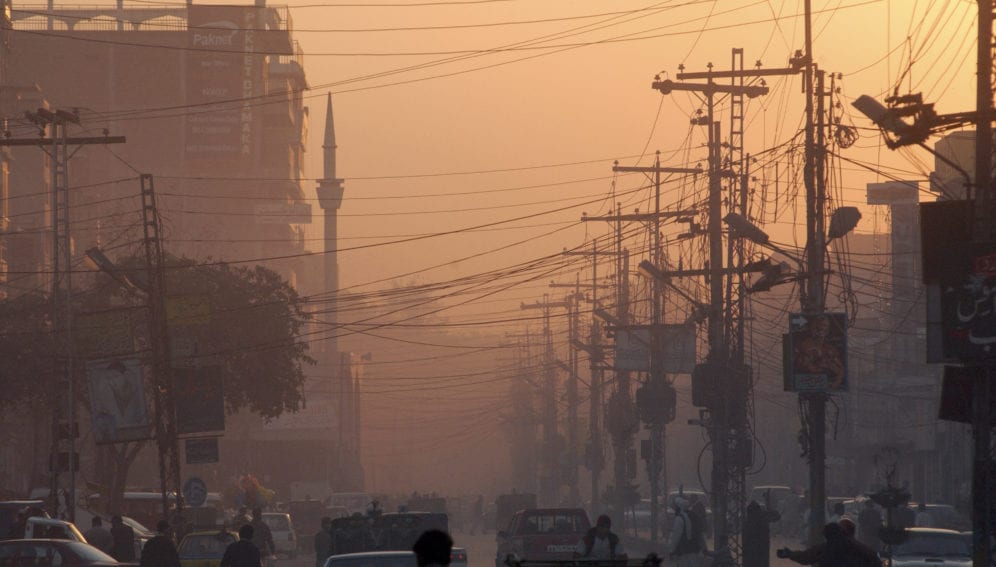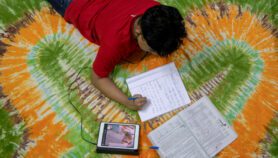By: Saleem Shaikh
Send to a friend
The details you provide on this page will not be used to send unsolicited email, and will not be sold to a 3rd party. See privacy policy.
[ISLAMABAD] Education, awareness and skill development programmes can help Pakistan reduce its carbon emissions without compromising economic growth, according to a new Pakistan-Chinese study.
Educated, innovative and productive human capital that is geared to adopt new, pollution-free methods and technologies in industry, transport and households is the best defence against environmental degradation, say researchers who published the findings of the study this month (May) in the Journal of Cleaner Production.
“We learnt from our findings that if people, employees and societies are more educated, they are more productive and have more potential to understand the importance of environmental quality and energy security and to follow environmental regulations”
Yuhuan Zhao, Beijing Institute of Technology
The researchers who based their study on data relating to long- and short-term effects of human capital on carbon emissions reduction in Pakistan from 1971 to 2014 also studied linkages among carbon emissions, human capital, energy consumption and economic growth.
“We learnt from our findings that if people, employees and societies are more educated, they are more productive and have more potential to understand the importance of environmental quality and energy security and to follow environmental regulations,” Yuhuan Zhao, lead author and associate professor at the School of Management and Economics, Beijing Institute of Technology, tells SciDev.Net.
Zhao suggests improving and increasing education access, maximising students enrolled in secondary education and investing in educational and vocational training centres. “This will require the government to develop a viable plan with respect to enhanced expenditure on the education sector for provision of more education facilities,” she says.
According to Pakistan’s Nationally Determined Contributions submitted to the UN in 2016, the country’s annual carbon emissions stood at 405 million ton CO2 equivalent in 2015. The annual emissions levels are set to spike up to 1,603 million ton CO2 equivalent by 2030, with 56 per cent of it from inefficient and fossil fuel-based energy.
Author of the 2017 Pakistan National Human Development report Adil Najam says the study’s findings show increasing emissions, most of it attributable to reckless energy use behaviour and inefficient technologies in the transport, industry and household sectors.
“Producing efficient and innovative manpower through enhanced access to education in a country where millions of children don’t attend school is inevitable if Pakistan is to achieve sustainable economic growth and reduce poverty,” says Najam, who is dean at the Pardee School of Global Studies, Boston University.
“This study’s findings are important not only for Pakistan but also for other populous countries with low human development indices,” he adds.
UNICEF representative in Pakistan Aida Girma-Melaku says one cannot expect to have efficient, skilled and innovative human capital in a country like Pakistan where 7 out of 10 children are still out of school.“Improving human capital through enhanced access to education and stronger investment in children and adult education holds the potential to boost carbon emission reduction in a country where environmental degradation costs US$7 billion to the national exchequer annually,” she says.
This piece was produced by SciDev.Net’s Asia & Pacific desk.














